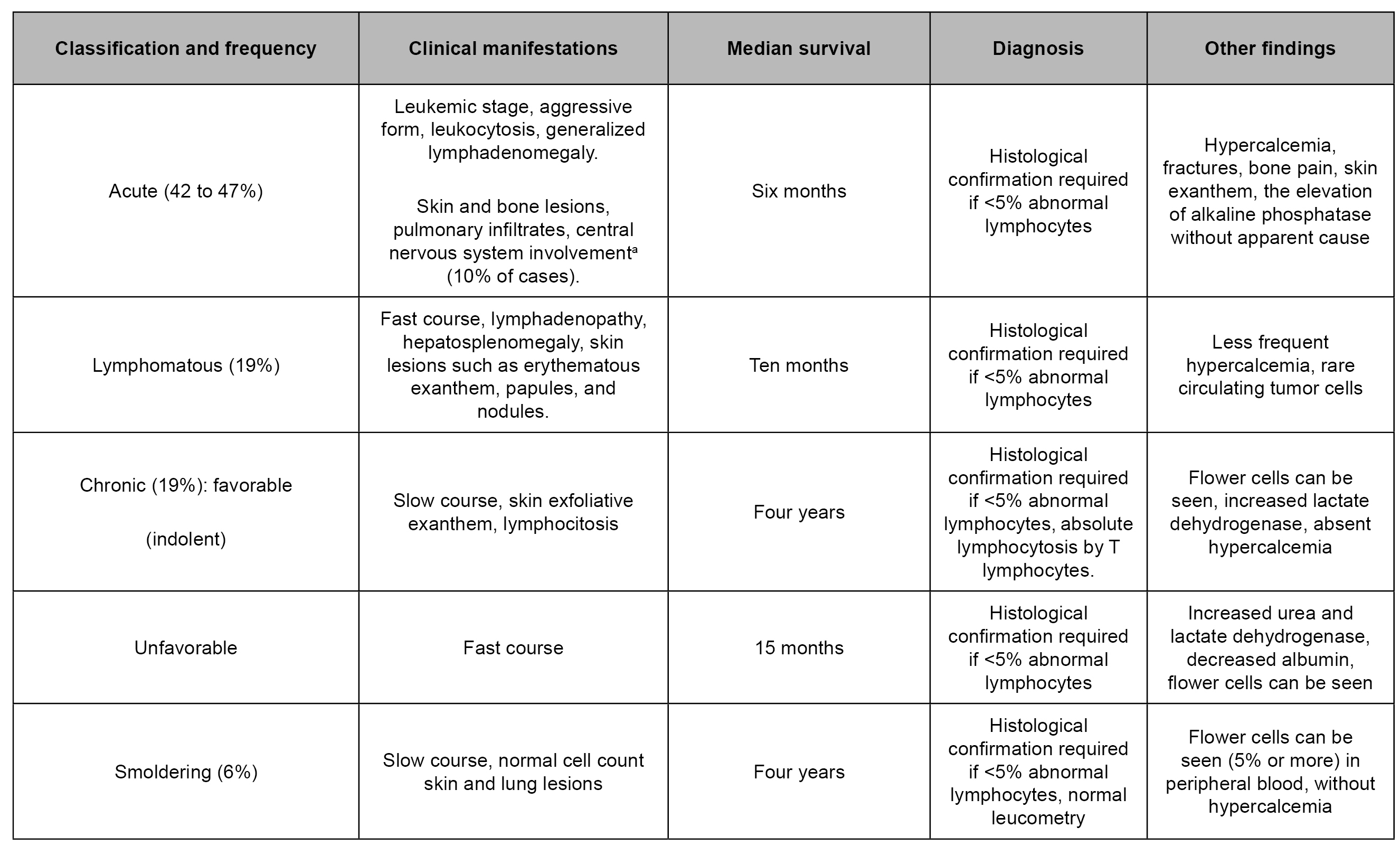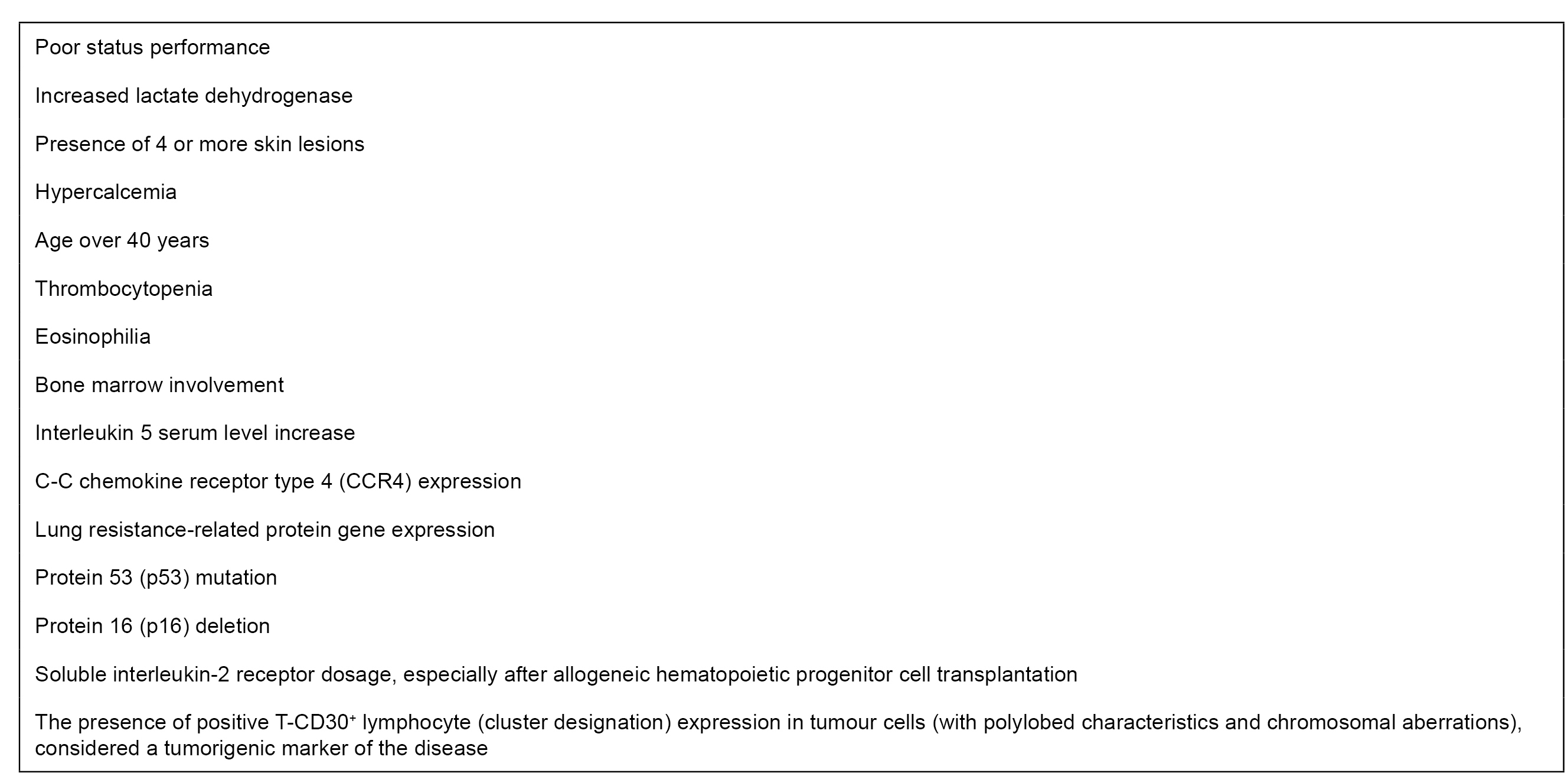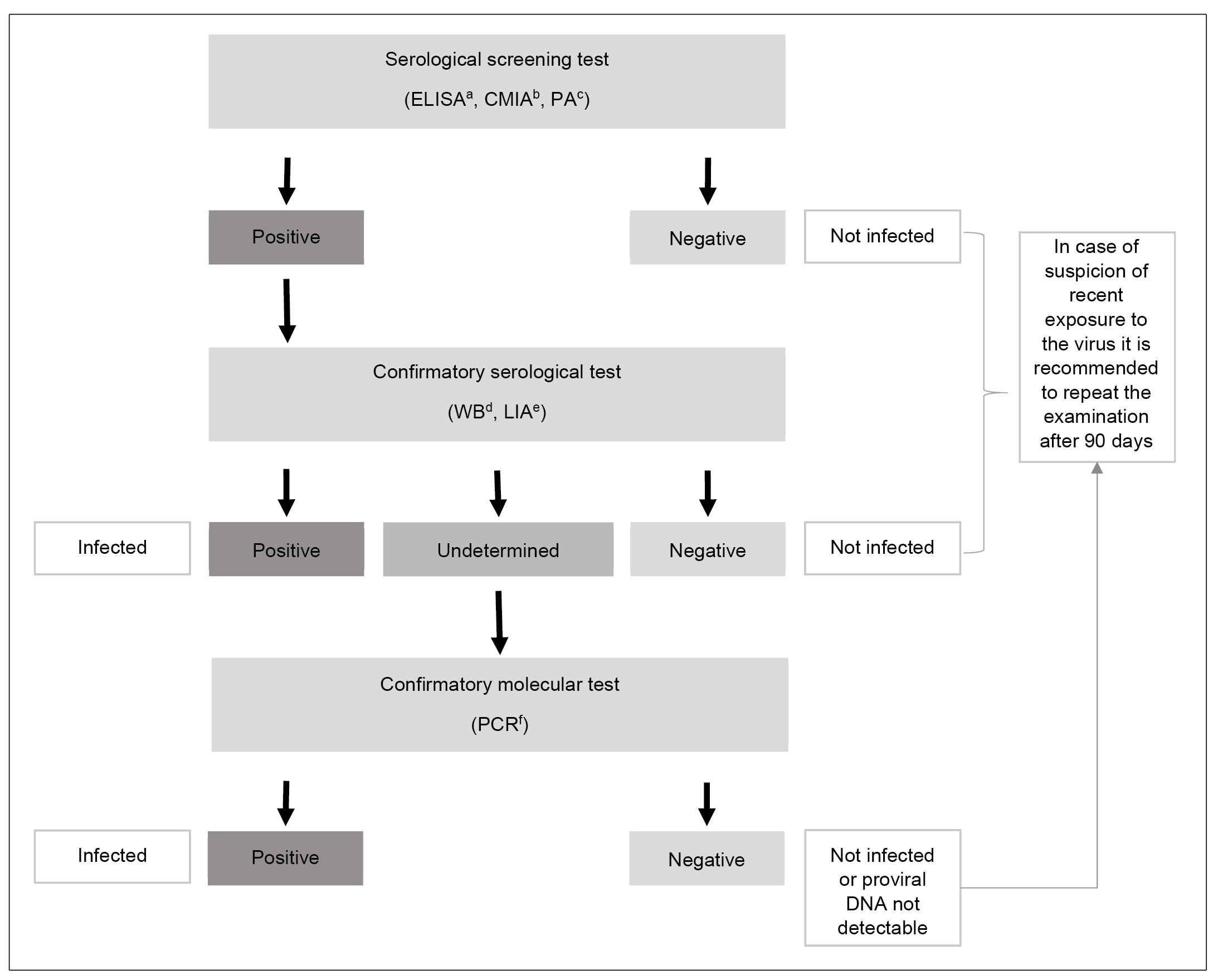|
North
|
|
|
|
| Pará |
0.6 |
324 |
Guerra et al. 2018188188. Guerra AB, Siravenha LQ, Laurentino RV, Feitosa RNM, Azecedo VN, Vallinoto ACR , et al. Seroprevalence of HIV, HTLV, CMV, HBV and rubella virus infections in pregnant adolescents who received care in the city of Belém, Pará, Northern Brazil. BMC Pregnancy Childbirth [Internet]. 2018 May [cited 2020 Oct 15] ; 18(1):169. Available from: https://doi.org/10.1186/s12884-018-1753-x
https://doi.org/10.1186/s12884-018-1753-...
b
|
| |
0.3 |
13,382 |
Sequeira et al. 2012192192. Sequeira CG, Tamegão-Lopes BP, Santos EJM, Ventura AMR, Moraes-Pinto MI, Succi RCM. Estudo descritivo da infecção pelo HTLV em uma população de gestantes do Estado do Pará, norte do Brasil. Rev Soc Bras Med Trop [Internet]. 2012 [cited 2020 out 15]; 45(4):453-6. Available from: https://doi.org/10.1590/S0037-86822012005000007
https://doi.org/10.1590/S0037-8682201200...
|
| Amazonas |
0 |
674 |
Machado Filho et al. 2010194194. Machado-Filho AC, Sardinha JFJ, Ponte RL, Costa EP, da Silva SS, Martinez-Espinosa FE. Prevalence of infection for HIV, HTLV, HBV and of syphilis and chlamydia in pregnant women in a tertiary health unit in the western Brazilian Amazon region. Rev Bras Ginecol Obstet [Internet]. 2010 Apr [cited 2020 Oct 15] ; 32(4):176-83. Available from: https://doi.org/10.1590/S0100-72032010000400005
https://doi.org/10.1590/S0100-7203201000...
|
|
Northeast
|
|
|
|
| Alagoas |
0.2 |
54,813 |
Moura et al. 2015179179. Moura AA, Mello MJG, Correia JB. Prevalence of syphilis, human immunodeficiency virus, hepatitis B virus, and human T-lymphotropic virus infections and coinfections during prenatal screening in an urban Northeastern Brazilian population. Int J Infect Dis [Internet]. 2015 Oct [cited 2020 Oct 15] ; 39: 10-5. Available from: https://doi.org/10.1016/j.ijid.2015.07.022
https://doi.org/10.1016/j.ijid.2015.07.0...
|
| Bahia |
0.14 |
692 |
Boa-Sorte et al. 2014190190. Boa-Sorte N , Purificação A, Amorim T, Assunção L, Reis A, Galvão-Castro B . Dried blood spot testing for the antenatal screening of HTLV, HIV, syphilis, toxoplasmosis and hepatitis B and C: prevalence, accuracy and operational aspects. Brazilian J Infect Dis [Internet]. 2014 Nov-Dec [cited 2020 Oct 15] ; 18(6):618-24. Available from: https://doi.org/10.1016/j.bjid.2014.05.009
https://doi.org/10.1016/j.bjid.2014.05.0...
c
|
| |
1.05 |
2,766 |
Mello et al. 2014191191. Mello MAG, Conceição AF, Sousa SMB, Alcântara LC, Marin LJ, Raiol MRS, et al. HTLV-1 in pregnant women from the Southern Bahia, Brazil: a neglected condition despite the high prevalence. Virol J [Internet]. 2014 Feb [cited 2020 Oct 15] ; 11:28. Available from: https://doi.org/10.1186/1743-422X-11-28
https://doi.org/10.1186/1743-422X-11-28...
|
| |
0.98 |
408 |
Magalhães et al. 2008195195. Magalhães T, Mota-Miranda AC, Alcantara LCJ, Olavarria V, Galvão-Castro B , Rios-Grassi MF. Phylogenetic and molecular analysis of HTLV-1 isolates from a medium sized town in Northern of Brazil: Tracing a common origin of the virus from the most endemic city in the country. J Med Virol [Internet]. 2008 Nov [cited 2020 Oct 15] ; 80(11):2040-5. Available from: https://doi.org/10.1002/jmv.21278
https://doi.org/10.1002/jmv.21278...
|
| |
0.84 |
6,754 |
Bittencourt et al. 2001183183. Bittencourt AL, Dourado I, Filho PB, Santos M, Valadão E, Alcantara LC, et al. Human T-cell lymphotropic virus type 1 infection among pregnant women in northeastern Brazil. J Acquir Immune Defic Syndr [Internet]. 2001 Mar [cited 2020 Oct 15] ; 26(5):490-4. Available from: https://doi.org/10.1097/00126334-200104150-00016
https://doi.org/10.1097/00126334-2001041...
|
| |
0.88 |
1,024 |
Santos et al. 1995185185. Santos JI, Lopes MA, Deliège-Vasconcelos E, Couto-Fernandez JC, Patel BN, Barreto ML , et al. Seroprevalence of HIV, HTLV-I/II and other perinatally-transmitted pathogens in Salvador, Bahia. Rev Inst Med Trop São Paulo [Internet]. 1995 Jul-Aug [cited 2020 Oct 15] ; 37(4):343-8. Available from: https://doi.org/10.1590/S0036-46651995000400010
https://doi.org/10.1590/S0036-4665199500...
|
| Maranhão |
0.7 |
713 |
Mendes et al. 2020186186. Mendes FCM, Lima JRO, Melo BO, Pinto CMFS, Maia HS, Ferro TAF, et al. Molecular detection of human T cell lymphotropic virus type 1 in pregnant women from Maranhão state, Brazil. Braz J Microbiol [Internet]. 2020 Jun [cited 2020 Oct 15] ; 51(2):637-45. Available from: https://doi.org/10.1007/s42770-020-00233-0
https://doi.org/10.1007/s42770-020-00233...
|
| |
0.3 |
2,044 |
Guimarães de Souza et al. 2012193193. Souza VG, Martins ML , Carneiro-Proietti ABF , Januário JN, Ladeira RVP, Silva CMS, et al. High prevalence of HTLV-1 and 2 viruses in pregnant women in São Luis, state of Maranhão, Brazil. Rev Soc Bras Med Trop [Internet]. 2012 Mar-Apr [cited 2020 Oct 15] ; 45(2):159-62. Available from: https://doi.org/10.1590/S0037-86822012000200004
https://doi.org/10.1590/S0037-8682201200...
|
| Ceará |
0.12 |
814 |
Broutet et al. 1996184184. Broutet N, Queiroz Sousa A, Basilio FP, Sa HL, Simon F, Dabis F. Prevalence of HIV-1, HIV-2 and HTLV antibody, in Fortaleza, Ceara, Brazil, 1993-1994. Int J STD AIDS [Internet]. 1996 Aug-Sep [cited 2020 Oct 15] ; 7(5):365-9. Available from: https://doi.org/10.1258/0956462961918103
https://doi.org/10.1258/0956462961918103...
|
|
Midwest
|
|
|
|
| Mato Grosso do Sul |
0.13 |
116,689 |
Dal Fabbro et al. 2008196196. Dal Fabbro MMFJ, Cunha RV, Bóia MN, Portela P, Botelho CA, Freitas GMB, et al. Infecção pelo HTLV 1/2: atuação no pré-natal como estratégia de controle da doença no Estado de Mato Grosso do Sul. Rev Soc Bras Med Tro p [Internet]. 2008 Mar-Apr [cited 2020 Oct 15] ; 41(2):148-51. Available from: https://doi.org/10.1590/S0037-86822008000200003
https://doi.org/10.1590/S0037-8682200800...
|
| |
0.1 |
32,512 |
Figueiró Filho et al. 2007180180. Figueiró-Filho EA, Senefonte FRA, Lopes AHA, Morais OO, Souza Júnior VG, Maia TL, et al. Freqüência das infecções pelo HIV-1, rubéola, sífilis, toxoplasmose, citomegalovírus, herpes simples, hepatite B, hepatite C, doença de Chagas e HTLV I/II em gestantes, do Estado de Mato Grosso do Sul. Rev Soc Bras Med Trop [Internet]. 2007 mar-abr [cited 2020 out 15]; 40(2):181-7. Available from: https://doi.org/10.1590/S0037-86822007000200007
https://doi.org/10.1590/S0037-8682200700...
|
| Goiás |
0.1 |
15,485 |
Oliveira et al. 2006181181. Oliveira SR, Avelino MM. Soroprevalência do vírus linfotrópico-T humano tipo I entre gestantes em Goiânia, GO, Brasil. Rev Bras Ginecol Obstet [Internet]. 2006 [cited 2020 out 15]; 28(8):467-72. Available from: https://doi.org/10.1590/S0100-72032006000800005
https://doi.org/10.1590/S0100-7203200600...
|
|
Southeast
|
|
|
|
| Rio de Janeiro |
0.74 |
1,628 |
Barmpas et al. 2019187187. Sodré Barmpas DB, Monteiro DLM, Taquette SR, Rodrigues NCP, Trajano AJB, Cunha JC, et al. Pregnancy outcomes and mother-to-child transmission rate in HTLV-1/2 infected women attending two public hospitals in the metropolitan area of Rio de Janeiro. PLoS Negl Trop Dis [Internet]. 2019 Jun [cited 2020 Oct 15] ; 13(6):e0007404. Available from: https://doi.org/10.1371/journal.pntd.0007404
https://doi.org/10.1371/journal.pntd.000...
|
| |
0.66 |
1,204 |
Monteiro et al. 2014189189. Monteiro DLM, Taquette SR, Sodré Barmpas DB, Rodrigues NCP, Teixeira SAM, Villela LHC, et al. Prevalence of HTLV-1/2 in pregnant women living in the metropolitan area of Rio de Janeiro. PLoS Negl Trop Dis [Internet]. 2014 Sep [cited 2020 Oct 15] ; 8:e3146. Available from: https://doi.org/10.1371/journal.pntd.0003146
https://doi.org/10.1371/journal.pntd.000...
|
| São Paulo |
0.1 |
913 |
Olbrich Neto et al, 2004182182. Olbrich-Neto J, Meira DA. Soroprevalence of HTLV-I/II, HIV, siphylis and toxoplasmosis among pregnant women seen at Botucatu - São Paulo - Brazil: risk factors for HTLV-I/II infection. Rev Soc Bras Med Trop [Internet]. 2004 [cited 2020 Oct 15] ; 37(1):28-32. Available from: https://doi.org/10.1590/S0037-86822004000100008
https://doi.org/10.1590/S0037-8682200400...
|
|
South
|
|
|
|
| Paraná |
0.31 |
643 |
Medeiros et al. 2018159159. Medeiros ACM, Vidal LRR, Von Linsingen R, Ferin AN, Strapasson TB, Almeida SM, et al. Confirmatory molecular method for HTLV-1/2 infection in high-risk pregnant women. J Med Virol [Internet]. 2018 May [cited 2020 Oct 15] ; 90(5):998-1001. Available from: https://doi.org/10.1002/jmv.25014
https://doi.org/10.1002/jmv.25014...
d
|

 Thumbnail
Thumbnail
 Thumbnail
Thumbnail
 Thumbnail
Thumbnail
 Thumbnail
Thumbnail
 Source: adapted from Nosaka et al. 2017
Source: adapted from Nosaka et al. 2017 Source: adapted from Iwanaga et al. 2010
Source: adapted from Iwanaga et al. 2010
 Notes: a) ELISA: immunoenzymatic assay; b) CMIA: chemiluminescence; c) PA: particle agglutination; d) WB: Western blot; e) LIA: line immunoassay; f) PCR: polymerase chain reaction.
Notes: a) ELISA: immunoenzymatic assay; b) CMIA: chemiluminescence; c) PA: particle agglutination; d) WB: Western blot; e) LIA: line immunoassay; f) PCR: polymerase chain reaction.